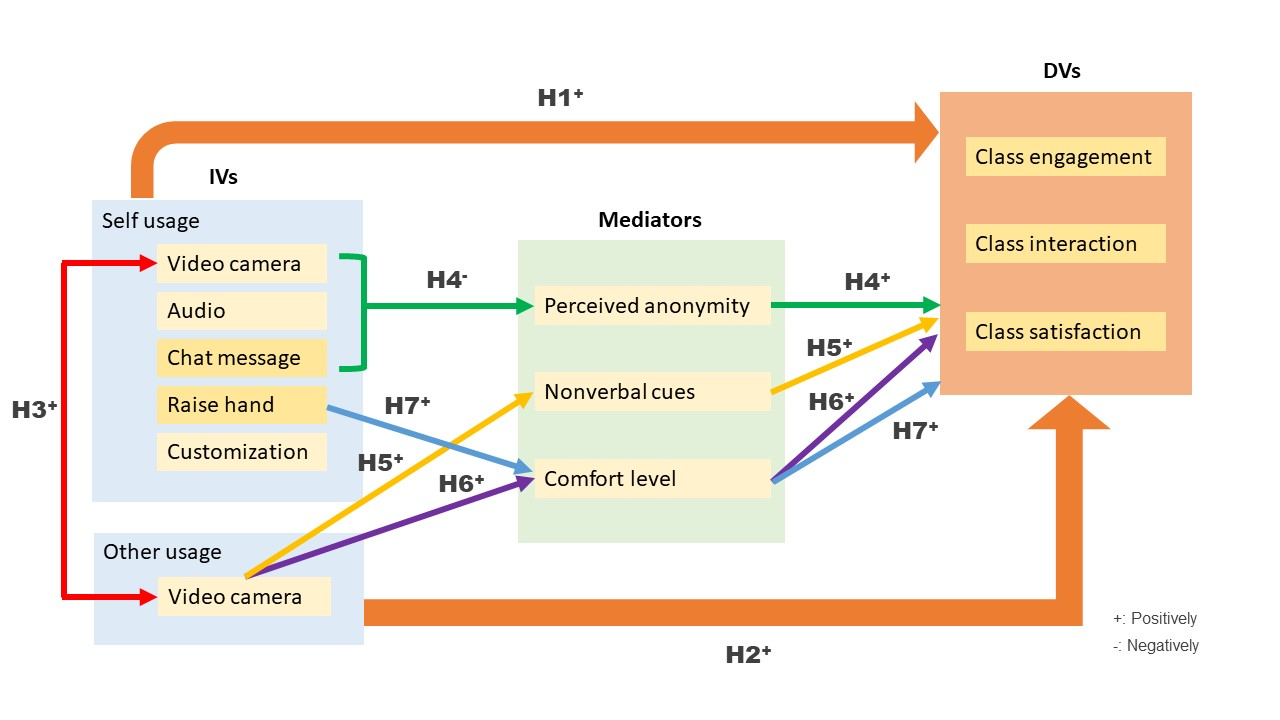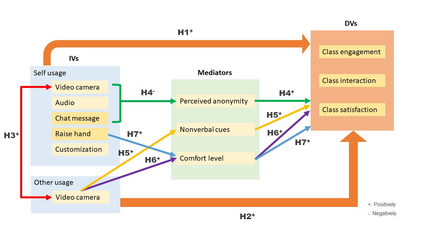The outbreak of COVID-19 forced schools to swiftly transition from in-person classes to online or remote offerings, making educators and learners alike rely on online videoconferencing platforms. Platforms like Zoom offer audio-visual channels of communication and include features that are designed to approximate the classroom experience. However, it is not clear how students' learning experiences are affected by affordances of the videoconferencing platforms or what underlying factors explain the differential effects of these affordances on class experiences of engagement, interaction, and satisfaction. In order to find out, we conducted two online survey studies: Study 1 (N = 176) investigated the effects of three types of videoconferencing affordances (i.e., modality, interactivity, and agency affordances) on class experience during the first two months after the transition to online learning. Results showed that usage of the three kinds of affordances was positively correlated with students' class engagement, interaction, and satisfaction. Perceived anonymity, nonverbal cues, and comfort level were found to be the key mediators. In addition, students' usage of video cameras in class was influenced by their classmates. Study 2 (N = 256) tested the proposed relationships at a later stage of the pandemic and found similar results, thus serving as a constructive replication. This paper focuses on reporting the results of Study 1 since it captures the timely reactions from students when they first went online, and the second study plays a supplementary role in verifying Study 1 and thereby extending its external validity. Together, the two studies provide insights for instructors on how to leverage different videoconferencing affordances to enhance the virtual learning experience. Design implications for digital tools in online education are also discussed.
翻译:COVID-19的爆发迫使学校迅速从面对面课程过渡到在线或远程教学,使教育者和学习者都依赖在线视频会议平台。Zoom等平台提供视听交流渠道,并包含旨在接近课堂经验的特征。然而,尚不清楚学生的学习经验如何受到视频会议平台发价的影响,或者这些发价对课堂接触、互动和满意度的不同影响有何基本原因。为了了解情况,我们进行了两项在线调查研究:研究1(N=176)调查了三种类型的视频会议发价(即模式、互动和代理发价)在向在线学习过渡后头两个月里对课堂经验的影响。结果显示,使用三种发价与学生的课堂参与、互动和满意度有着积极的关系。发现匿名、非口头提示和舒适程度是关键的调解人。此外,学生在课堂上使用视频相机相机的使用情况受到其课堂上三种类型(即模式、互动、互动和代理机构发价)对课堂经验的影响,因此,在在线学习1号研究之后,通过在线学习结果,在网上学习1号研究中,为学习结果的更新结果,在网上学习1号研究中,因此,测试了1号研究中,随后,为学习结果。




